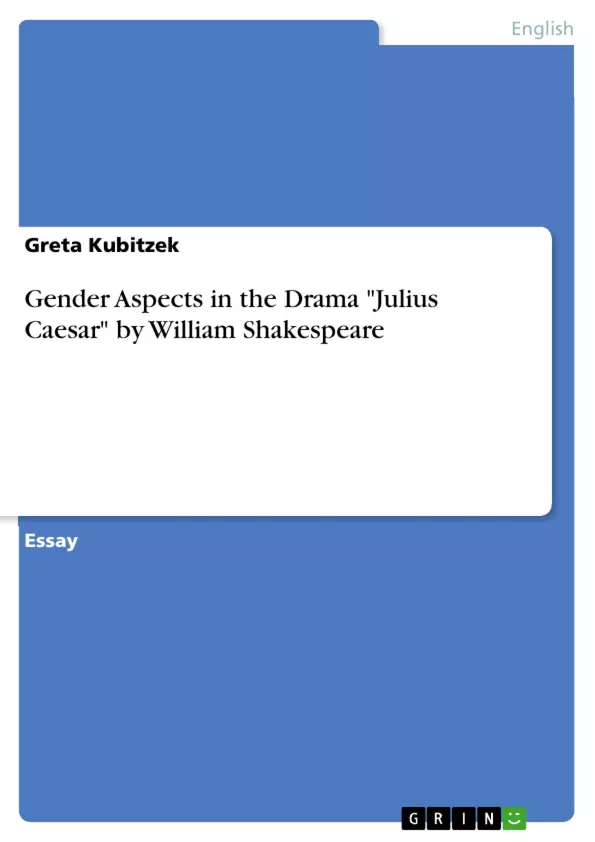This term paper deals with gender in William Shakespeares’ drama “Julius Caesar”.With only two women in the whole play, the Rome depicted in Shakespeare's Julius Caesar can certainly be described as a very male dominated world.
The female characters Calpurnia and Portia are absent for most of the play, and when they do appear, they do so in a domestic context. Despite their strong personalities and intelligence, they are disregarded and ignored by their husbands. Women are thought unfit to get involved in politics, as they are seen as weak and overly emotional creatures that cannot think as rationally as men, who are presented as their binary opposites.
Furthermore, concepts and understandings of masculinity play a crucial role in Julius Caesar as they strongly influence how male characters behave and what decisions they make during the course of the play.
- Arbeit zitieren
- Greta Kubitzek (Autor:in), 2017, Gender Aspects in the Drama "Julius Caesar" by William Shakespeare, München, GRIN Verlag, https://www.grin.com/document/374274



